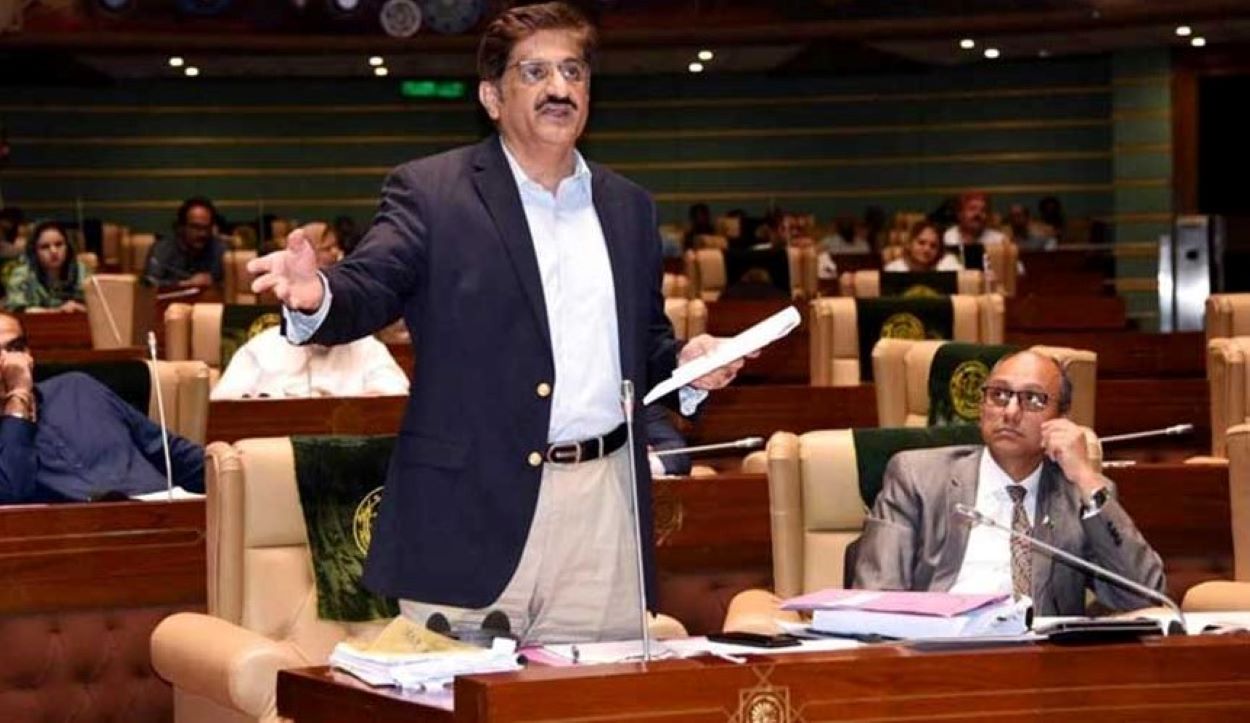On June 13, 2025, Sindh Chief Minister Syed Murad Ali Shah presented the provincial fiscal year 2025-26 budget, totalling Rs. 3,451.87 billion, a 12.9% increase from last year’s Rs. 3,056.3 billion.
With a Rs. 38.458 billion deficit, the budget prioritises education, health, infrastructure, and social welfare while introducing tax relief measures.
Key Highlights of Sindh Budget 2025-26
The budget emphasises inclusive growth through increased sectoral allocations and governance reforms. Key features include:
- Tax Relief: Abolition of five levies (Professional Tax, Entertainment Duty, Drainage Cess, Cotton Fees, Local Cess) and reduced motor vehicle taxes.
- Salary and Pension Hikes: 12% raise for BS-1 to BS-16 employees, 10% for BS-17 to BS-22, and 8% pension increase.
- Education: Rs. 523.73 billion (12.4% increase), with Rs. 156.2 billion for primary and Rs. 77.2 billion for secondary education.
- Health: Rs. 326.5 billion (8% increase), including Rs. 146.9 billion in grants for institutions like SIUT (Rs. 19 billion).
- Infrastructure: Rs. 520 billion for 475 new schemes, focusing on flood rehabilitation and Karachi’s urban transport.
- Social Welfare: Rs. 20 billion for pro-poor initiatives, enhanced support for differently-abled persons, and youth development centres.
Sindh’s projected receipts for 2025-26 are Rs. 3,411.5 billion, up 11.6% from last year. Federal transfers, comprising 75% of revenue, are estimated at Rs. 2,095.6 billion, a 10.2% rise despite a 5.5% shortfall this year. Current revenue expenditure is set at Rs. 2,149.4 billion, a 12.4% increase, driven by salary hikes, pensions, and grants to hospitals and universities.
Total expenditure will rise by 12.9% to Rs. 3,450 billion, with significant allocations for police (Rs. 189.75 billion, 15.7% increase), health (Rs. 336.46 billion, 11.3% increase), and education (Rs. 518.05 billion, 18% increase).
The education sector receives Rs. 523.73 billion, 25.3% of current revenue expenditure. Initiatives include hiring 4,400 staff, establishing four IBA community colleges, and empowering 34,100 primary schools with dedicated budgets. The Sindh Educational Endowment Fund gets Rs. 2 billion for underprivileged students.
Health funding rises to Rs. 326.5 billion, with Rs. 10 billion for a new Larkana hospital and expanded ambulance services. The Differently Abled Persons Development Program budget grows to Rs. 17.3 billion, supporting assistive devices and NGO partnerships.
Karachi Development and Digital Governance
Karachi’s infrastructure will be upgraded, including 50 electric buses by 2025 and progress on BRT Yellow and Red Lines. The Karachi Safe City project will advance with AI-integrated CCTV systems. Digital reforms include a KPI monitoring dashboard, blockchain-based land records, and a digital birth registration system targeting 100% coverage by 2028.
The Benazir Hari Card will provide subsidies to 200,000 farmers, while climate-smart agriculture promotes drip irrigation. Social welfare initiatives decentralise education budgets, expand disability support, and establish youth development centres for skills training.
The Sindh budget 2025-26 reflects a commitment to sustainable development, addressing education, health, and infrastructure needs while easing tax burdens. CM Murad Ali Shah’s vision aims to drive economic growth and social equity.






